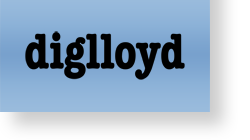Saving Democracy From the Pandemic
re: John Ioannidis
So long as Twitter and Facebook and their ilk exist as they do now, the game looks to be in its final innings.
Saving Democracy From the Pandemic
2022-01-23, by BY JOHN P.A. IOANNIDIS AND MICHAÉLA C. SCHIPPERS. Emphasis added.
Three years of crisis were used to justify the concentration of powers and suppression of freedoms that must be clawed back
COVID-19 has killed millions and threatened the prospects of democracy for billions more. Since early 2020, the world has witnessed a marked expansion of governmental decision-making regarding health. Lockdowns and curfews were instated in many countries, and many freedoms were taken away under the justification of a major health threat. Health authorities and politicians alluding to or exploiting health authorities acquired extraordinary power to regulate society at large, including the application of mandates...
A Freedom House report found that democracy grew weaker in 80 countries during COVID-19, and that in 2020 the number of free countries reached the lowest level in 15 years. Countries that regressed included ones you’d expect like China and Belarus, but also democratic bulwarks like the United States, France, Denmark, and the Netherlands. The United States was listed as one of the 25 countries that witnessed the steepest declines in freedom. Even if the pandemic enters a less threatening endemic phase (as may already be the case in several countries), the legacy of authoritarian measures and mandates may leave behind a more enduring threat to democracy.
...The worst way to address such circumstances is to double down on trying to replace concrete values like freedom and equality with goals like safety and health under the guise of “science” and the greater good. No reasonable person would question that all of these values and goals are worthy of our efforts. But when they clash (or are portrayed as clashing), democratic societies must make decisions on priorities. Once individual freedom has been downgraded as a priority, it is difficult to ever get back.
In navigating such difficult circumstances, we need to ask ourselves: What kind of society do we want to have, and what legacy do we want to leave behind to our descendants? To stay healthy and thrive, human beings need positive reinforcement, engagement, close relationships, meaning, and a sense of accomplishment. Even if run by benign “experts” or agencies, top-down societies in which decision-making power is concentrated in the hands of a small group of people make it harder, not easier, for people to live these types of lives. It becomes still more difficult when small groups of people also preside over the concentration of wealth and information
This is especially important in the realm of scientific debate. Anyone who believes that it’s possible to cleanse “science” of error through brute force censorship has no understanding of how science works or how accurate, unbiased evidence is accumulated in the first place. The idea of arbitrators who select what is correct and dismiss what is incorrect is the most alien possible concept to science....
...
As the pandemic ebbs, the years ahead will help determine whether we as democratic citizens and free people are still capable of making our own decisions, pursuing happiness, and refraining from harm, without falling prey to the authoritarian temptations that have felled democracies in the past.
DIGLLOYD: all societies collapse sooner or later, usually by rotting from within. COVID fed that rot and accelerated it, but did not create it.
Recommended : The Road to Serfdom @AMAZON.
How the Pandemic Is Changing the Norms of Science
2022-09-08, by BY JOHN P.A. IOANNIDIS. Emphasis added.
...One problem with this new mass engagement with science is that most people, including most people in the West, had never been seriously exposed to the fundamental norms of the scientific method. The Mertonian norms of communalism, universalism, disinterestedness, and organized skepticism have unfortunately never been mainstream in education, media, or even in science museums and TV documentaries on scientific topics.
Before the pandemic, the sharing of data, protocols, and discoveries for free was limited, compromising the communalism on which the scientific method is based. It was already widely tolerated that science was not universal, but the realm of an ever-more hierarchical elite, a minority of experts. Gargantuan financial and other interests and conflicts thrived in the neighborhood of science—and the norm of disinterestedness was left forlorn.
As for organized skepticism, it did not sell very well within academic sanctuaries. Even the best peer-reviewed journals often presented results with bias and spin. Broader public and media dissemination of scientific discoveries was largely focused on what could be exaggerated about the research, rather than the rigor of its methods and the inherent uncertainty of the results.
... Opinion-based experts (while still dominant in influential committees, professional societies, major conferences, funding bodies, and other power nodes of the system) were often challenged by evidence-based criticism... One might therefore have hoped that the pandemic crisis could have fostered change. Indeed, change did happen—but perhaps mostly for the worst.
...Social and mainstream media have helped to manufacture this new breed of experts. Anyone who was not an epidemiologist or health policy specialist could suddenly be cited as an epidemiologist or health policy specialist by reporters who often knew little about those fields but knew immediately which opinions were true. Conversely, some of the best epidemiologists and health policy specialists in America were smeared as clueless and dangerous by people who believed themselves fit to summarily arbitrate differences of scientific opinion without understanding the methodology or data at issue.
...Disinterestedness suffered gravely. In the past, conflicted entities mostly tried to hide their agendas. During the pandemic, these same conflicted entities were raised to the status of heroes...
...Organized skepticism was seen as a threat to public health. There was a clash between two schools of thought, authoritarian public health versus science—and science lost.
Honest, continuous questioning and exploration of alternative paths are indispensable for good science. In the authoritarian (as opposed to participatory) version of public health, these activities were seen as treason and desertion. The dominant narrative became that “we are at war.” When at war, everyone has to follow orders. If a platoon is ordered to go right and some soldiers explore maneuvering to the left, they are shot as deserters. Scientific skepticism had to be shot, no questions asked. The orders were clear.
...John Tukey once said that the collective noun for a group of statisticians is a quarrel... Reputations were systematically devastated and destroyed. Many brilliant scientists were abused and received threats during the pandemic, intended to make them and their families miserable.
...A scientist cannot and should not try to change his or her data and inferences based on the current doctrine of political parties or the reading du jour of the social media thermometer... Many excellent scientists have had to silence themselves in this chaos. Their self-censorship has been a major loss for scientific investigation and the public health effort...
There was absolutely no conspiracy or preplanning behind this hypercharged evolution. Simply, in times of crisis, the powerful thrive and the weak become more disadvantaged. Amid pandemic confusion, the powerful and the conflicted became more powerful and more conflicted, while millions of disadvantaged people have died and billions suffered.
I worry that science and its norms have shared the fate of the disadvantaged. It is a pity, because science can still help everyone. Science remains the best thing that can happen to humans, provided it can be both tolerant and tolerated.
WIND: COVID allowed the sickness in science to metastisize. Can it be saved?
The same deny/destroy/denigrate/demonize playbook for COVID is now the playbook for all areas of science and politics. THe battle has begun, led by one man. Will other courageous leaders step up? See Elon Musk's "Threat" to Restore Free Speech on Twitter Provokes Liberal Panic.



